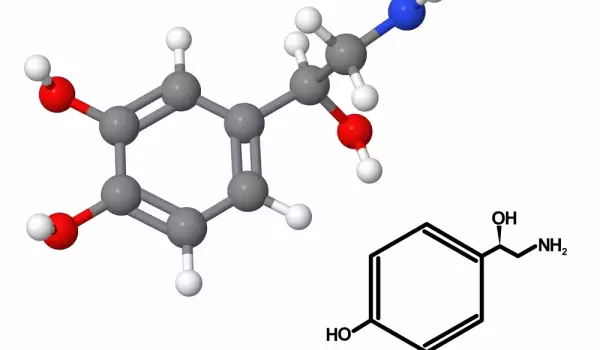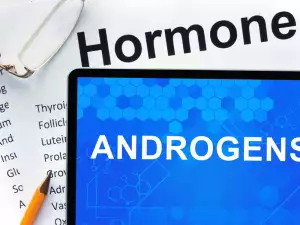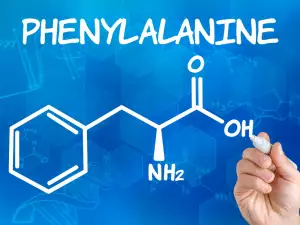Norepinephrine, also known as noradrenaline, is an important hormone, which, along with epinephrine, is produced in the core of the adrenal glands.
Norepinephrine has a similar effect to that of the sympathetic nervous system of the autonomic nervous system - it speeds up nerve impulses, inhibits movement of the stomach and intestines, increases blood pressure. Norepinephrine induces constriction of the blood vessels, leading to increased sustainability.
Functions of norepinephrine
Norepinephrine and adrenaline are the most common and widespread catecholamines in the body, which the sympathetic nervous system uses to control the metabolism in the human body. Norepinephrine is the major neurotransmitter of the sympathetic nervous system.
Norepinephrine, along with adrenaline accelerate metabolism and promote the conversion of glycogen in liver to glucose, thus increasing its concentration in the blood. When you are stressed, your norepinephrine increases.
The physiological actions of norepinephrine consist of its ability to increase the peripheral resistance of the circulatory system; it increases the state of wakefulness, causing insomnia, increased systolic or diastolic blood pressure.
With the development of a stressful situation, the adrenaline level gradually falls, and on account of that, the level of norepinephrine increases. The physiological effects of these 2 neurotransmitters can be likened to responses for an impending fight or flight.

In states of stress, norepinephrine and epinephrine, as well as cortisol, another hormone from the group of glucocorticoids, are released from the adrenal glands. It prepares the body to combat the physiological effects of stress.
Common incentives for the secretion of the hormones from the adrenal medulla are hypoglycaemia, exercise and emotional weakness.
Norepinephrine affects the state of wakefulness, and in cases of stress, it is produced in increased amounts. The result is turning all night in bed, being unable to sleep. Very often people do not suspect the cause of their insomnia and would never even think that the root cause is this hormone.
Scientists have discovered a very interesting fact relating to gambling addiction and norepinephrine. They believe that we can be saved from hasty actions at the gaming table by an injection of norepinephrine.
Another interesting fact is that from the about 30 so-far discovered neurotransmitters, researchers have established a link between three of them and clinical depression. These are dopamine, serotonin and norepinephrine. They function in those parts of the brain that control reactions to stress, appetite, emotions and sexual desire.
Levels of norepinephrine
Increased levels of norepinephrine may cause high blood pressure, elevated blood glucose, increased production of energy in the body, acceleration of heart rate and other conditions.
Consistently high levels of norepinephrine may be due to various reasons and diseases such as taking amphetamines, stress, adrenal adenoma, overactive adrenal gland, adrenal cancer and others. Low levels of norepinephrine are associated with falling into a depressive state.
Administration of norepinephrine
In the form of a drug, norepinephrine is taken to treat hypotension resulting from shock occurring from cardiogenic, postoperative and traumatic reasons.
It stimulates specific receptors, which leads to an increase in peripheral vascular resistance and blood pressure. The preparations should not be taken during pregnancy, atherosclerosis of the cerebral vessels and cardiac decompensation.












Comments